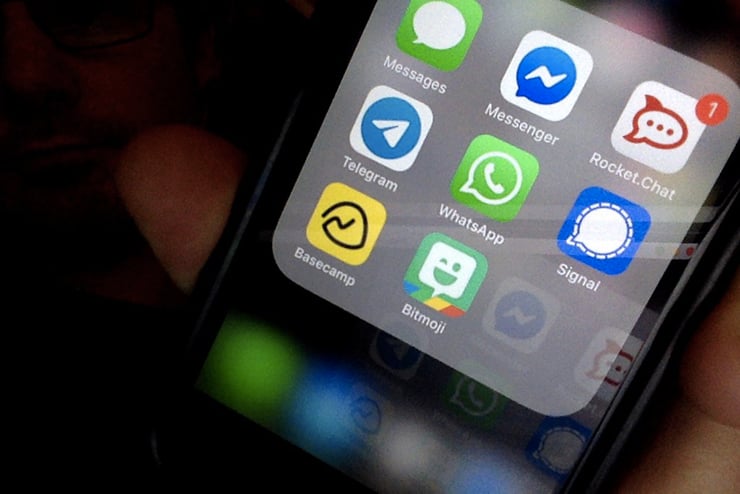The venerable logical principle known as “Occam’s razor,” attributed to the 14thcentury English philosopher and theologian William of Ockham, asserts that when confronted with multiple possible explanations for a causal phenomenon, the simplest explanation is—absent persuasive evidence to the contrary—usually correct.
Although hardly foolproof or comprehensive, Occam’s razor has the benefit of simply making a lot of sense. The problem is that Occam’s razor, as a general signpost to help make sense of the many things happening all around us, falls out of favor in an era when institutional trust is in freefall. And so it is today: From organized religion to the military to the media to Wall Street to public health authorities to Congress and the Supreme Court, public polling across recent decades typically shows a very negative trendline when it comes to Americans’ trust in virtually all of our major institutions.
To be sure, much of this collapse in public trust has been self-inflicted.
The Catholic Church sexual abuse scandal, which first came to light over two decades ago, undermined public trust in institutional religion in general. The legacy media have largely abandoned any pretense of objectivity or political neutrality, acting instead as left-wing culture-warring crusaders. Wall Street did itself no favors with the 2008 global financial crisis—as well as the subsequent Troubled Asset Relief Program bailout. Public health officials utterly botched their handling of the COVID-19 pandemic, on everything from lockdown and vaccine efficacy to the virus’s origins in China. Congress often seems incapable of doing anything other than hurl petty invectives across the aisle. And the Supreme Court is led by a chief justice who, as this column noted just last week, ironically exalts his tribunal’s “institutional integrity” so much that he ends up delegitimizing it.
We live in a decidedly populist age, and much of our underlying angst is justified—indeed, it is sometimes righteous. Public authorities have routinely dropped the ball and made egregiously bad decisions. Media bias is very real—and so is congressional incompetence. Oftentimes, the American ruling class—as the late, great intellectual Angelo Codevilla famously described it in a 2010 essay—really does prioritize its own parochial interests over the supreme imperative of the common good.
But there is a profound danger, always bubbling just below the surface, of anti-institutional sentiment going too far. Institutional dysfunction trains us to find or dream up arcane and irrational explanations for what we see in the world. At some point, Occam’s razor gets turned on its head: The simplest or most logical explanation cannot possibly be true because that’s what the powers that be want you to believe! Alternative explanations, often wildly elaborate and bearing little to no basis in factual reality, are proposed—sometimes in a circuitous manner, done in the ostensible name of “just asking questions.”
We saw this familiar script play out in the major domestic story of the past week: the “Signalgate” group chat texting scandal that has taken the nation by storm.
In this week’s headline-grabbing Signalgate controversy, the left-wing editor-in-chief of The Atlantic, Jeffrey Goldberg, was inexplicably added to a high-level group chat earlier this month on the encrypted commercial messaging app Signal. The chat, comprising top-ranking Trump administration officials such as Vice President JD Vance, Secretary of Defense Pete Hegseth and national security adviser Michael Waltz, debated and discussed plans for U.S. strikes on the Iran-backed Houthi rebels in Yemen (which have since come to fruition). They all seemed oblivious to Goldberg’s lurking digital presence.
There are numerous glaring questions that must be asked from this most embarrassing error, perhaps chief among them: How in the world did Goldberg, who did more than any other journalist in America to sell former President Barack Obama’s Iran nuclear deal one decade ago, get added to this chat?
Waltz organized the Signal chat, and many have been calling for his head all week. Waltz, a four-time Bronze Star recipient who became the first Army Special Forces soldier ever elected to Congress, tends—like President Donald Trump himself—to be more aggressive when it comes to confronting the terrorist Iranian regime and its sprawling web of regional proxies. Accordingly, there are actors on both the left and the Tucker Carlson-aligned right who want to sideline Waltz. Some of these propagandists have thus speculated that perhaps Waltz intentionally leaked to the execrable Goldberg—or perhaps that Waltz served as a Goldberg source inside the Trump administration.
But these ideologically driven explanations for Signalgate are implausible. The simplest explanation, per Occam’s razor, is that a Waltz staffer messed up—badly—by adding the wrong person styled “JG” into a group chat. To borrow another logical principle, Hanlon’s razor: Don’t ascribe to malice that which can be otherwise explained by rank incompetence. And so it is here as well. In this instance, the Waltz staffer should be fired posthaste, the administration should vow to do better, and that ought to be the end of the matter.
Many of the leading institutions in American public life do deserve our skepticism. Quite a few even deserve our outright scorn. But we cannot let that sad state of affairs melt our minds, either. Go outside, touch some grass and remember that oftentimes the exciting “alternative” explanation should be rejected for the simpler and more straightforward one.
COPYRIGHT 2025 CREATORS.COM

Leave a Reply